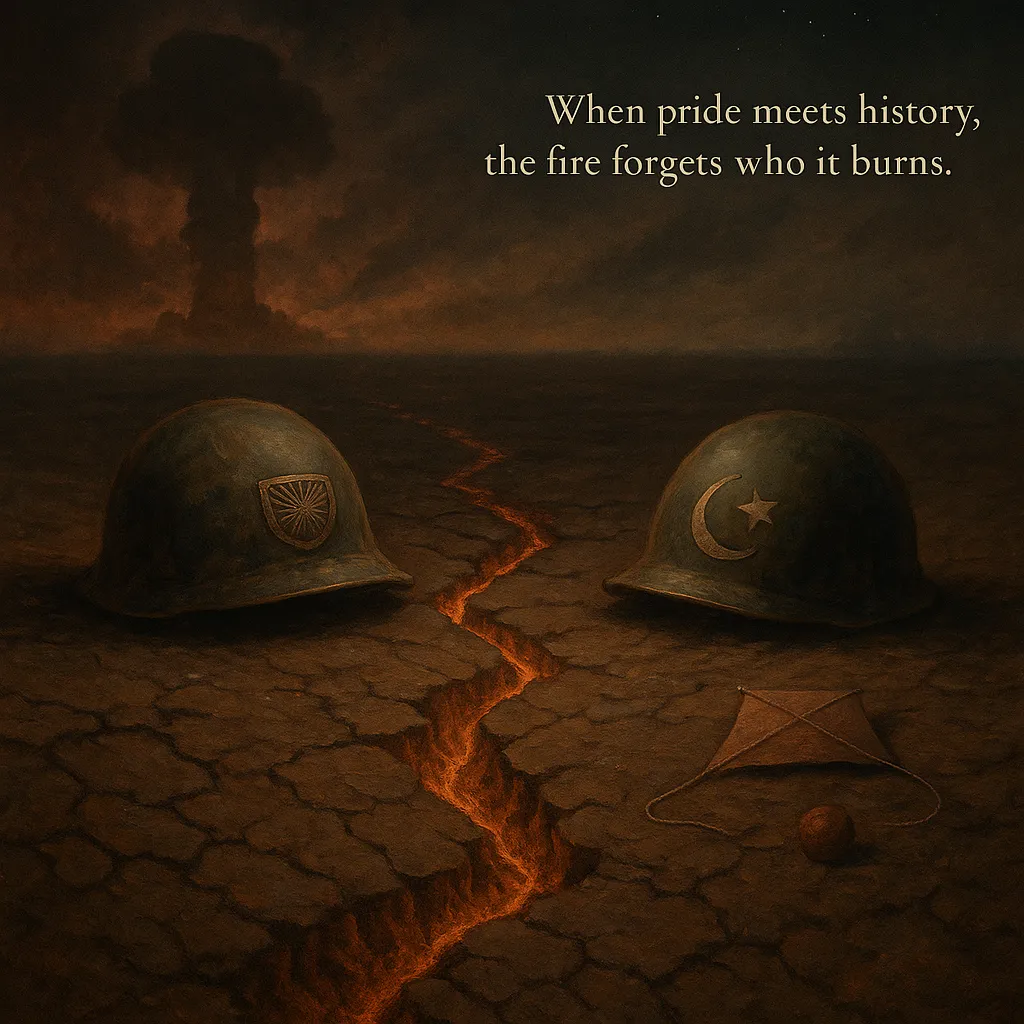
The Real Nuclear Threat We Ignored: A Reflection on India-Pakistan Escalation
By | Advanced Thinking Institute (ATI)
Ten years ago, amid rising fears about North Korea, tensions in Eastern Europe, and superpower rivalries between the U.S. and China, I found myself asking a simple but terrifying question:
Who would actually trigger a nuclear war?
The answer, I believed then—and still believe today—isn’t the major powers. For them, nuclear weapons are more about theatre than action. Bluff, posturing, deterrence. They know the cost. They know the consequences.
But India and Pakistan? They were, and still are, different.
Their conflict is not just strategic. It’s emotional. It’s about identity, history, wounds, and vengeance. The pain of partition, the trauma of Kashmir, the memories of past wars—they’re all still raw. And unlike other nuclear-armed nations, these two have actually gone to war with each other multiple times since gaining independence.
When emotions override logic, and nationalism becomes a kind of sacred fuel, restraint becomes fragile. It’s easy to imagine a situation—like what we are seeing now in May 2025—where one event leads to retaliation, then escalation, and suddenly the unthinkable becomes real.
Right now, the world is watching a chilling spiral:
- India launched missile strikes into Pakistani territory following a deadly attack on tourists.
- Pakistan retaliated, downing Indian jets and launching counterattacks.
- Civilians are dead. Both governments are making declarations of war.
This is the exact scenario I warned people about a decade ago—not because of any secret intelligence, but because I listened to the psychology of the region. I understood that where there is no trust, no cooling mechanism, and no emotional regulation at the leadership level, there is always danger.
This isn’t about choosing sides. It’s about seeing clearly.
The world can no longer treat the India–Pakistan rivalry as a regional issue. It is a global nuclear threat. And we must stop pretending that “it’ll never go that far.”
Because when history, ego, and trauma collide with firepower, it often does.
